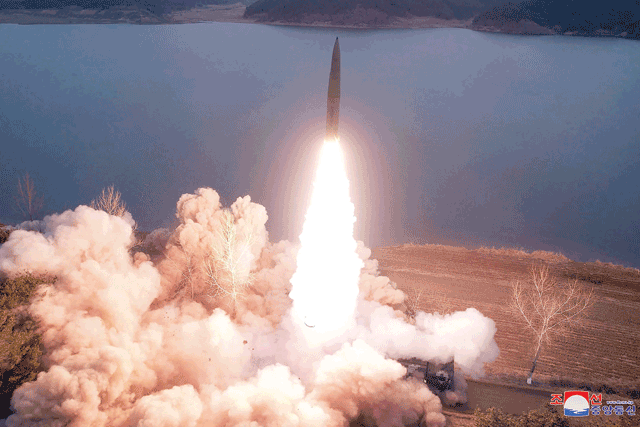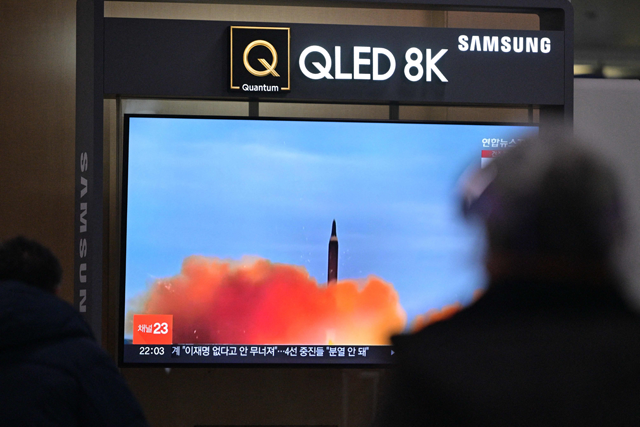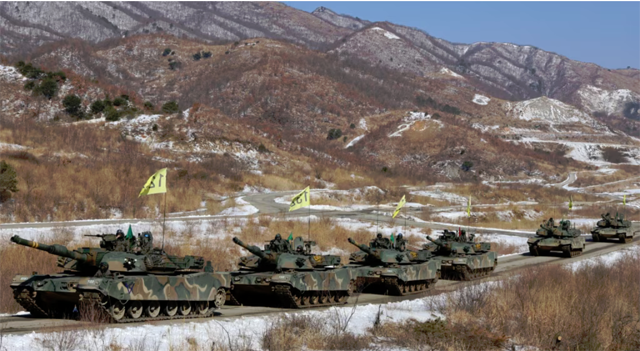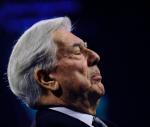You are here
North Korea fires two ballistic missiles, Seoul says
By AFP - Mar 15,2023 - Last updated at Mar 15,2023

This photo taken on Tuesday and released by North Korea's official Korean Central News Agency on Wednesday shows a missile being launched by a unit of the Korean People's Army, in charge of operational missions on the Western Front, at an undisclosed location in North Korea (AFP photo)
SEOUL — North Korea fired two short-range ballistic missiles Tuesday, Seoul said, Pyongyang's second launch in days and the first since South Korea and the United States began their largest joint military drills in five years.
Washington and Seoul have ramped up defence cooperation in the face of growing military and nuclear threats from the North, which has conducted a series of increasingly provocative banned weapons tests in recent months.
South Korea's Joint Chiefs of Staff said the military had detected two short-range ballistic missiles fired between 7:41 am (22:41 GMT) and 7:51 am, and which flew some 620 kilometres.
"Our military has strengthened surveillance and vigilance in preparation for additional launches," it added.
North Korea on Wednesday appeared to confirm the launch, with the state-run Korean Central News Agency reporting the country's military had the day before fired "two ground-to-ground missiles in a medium-range system".
"The missiles... precisely hit the target, Phi Islet" off the North's north-eastern coast, KCNA said.
Japanese government spokesman Hirokazu Matsuno said the missiles had not landed in his country's waters, though Tokyo suspected North Korea might take "further provocative action".
The launch comes three days after Pyongyang fired two strategic cruise missiles from a submarine in apparent protest over the US-South Korea exercises.
Known as Freedom Shield, the drills started on Monday and run for 10 days.
In a rare move, Seoul's military this month revealed the two allies' special forces were staging military exercises dubbed "Teak Knife" — which involve simulating precision strikes on key facilities in North Korea — ahead of Freedom Shield.
The Freedom Shield exercises focus on the "changing security environment" due to North Korea's redoubled aggression, the allies have said.
They will “involve wartime procedures to repel potential North Korean attacks and conduct a stabilisation campaign in the North”, the South Korean military said previously.
It emphasised that the exercise was a “defensive one based on a combined operational plan”.
But North Korea views all such drills as rehearsals for invasion and has repeatedly warned it would take “overwhelming” action in response.
On Tuesday, however, US National Security Council spokesman John Kirby said North Korea would not deter the alliance.
“If [their actions] are designed to disrupt or delay alliance training events, then they will fail. We are going to continue to train with our [South Korean] allies,” he told reporters during a briefing.
“There’s not going to be any change to how we’re training with our Korean allies,” Kirby added.
“And I’ll let the regime in Pyongyang speak to their intentions beyond that.”
Last year, North Korea declared itself an “irreversible” nuclear power and launched a record-breaking number of missiles.
Leader Kim Jong-un earlier this month ordered his military to intensify drills to prepare for a “real war”.
Leif Easley, a professor at Ewha University in Seoul, said while Pyongyang routinely justified its missile tests by pointing to the South’s military exercises, they also served a domestic purpose.
“This is largely about the Kim regime not wanting to look weak as it struggles economically at home while South Korea succeeds at strengthening its conventional firepower and security partnerships,” he told AFP.
“As a result, further shows of force can be expected from Pyongyang.”
Washington has repeatedly restated its “ironclad” commitment to defending South Korea, including using the “full range of its military capabilities, including nuclear”.
South Korea, for its part, is eager to reassure its increasingly nervous public about the US commitment to so-called extended deterrence, in which Washington’s military assets, including nuclear weapons, serve to prevent attacks on allies.
Analysts previously said North Korea would likely use the drills as an excuse to carry out more missile launches and perhaps even a nuclear test.
“More missile launches with variations in style and scope should be expected, with even a nuclear test. More acts of intimidation from North Korea should not come as a surprise,” said Chun In-bum, a retired South Korean army general.
Related Articles
SEOUL — North Korea fired multiple cruise missiles off its west coast on Saturday, Seoul's military said, the latest in a string of recent P
SEOUL — North Korea fired a short-range ballistic missile on Thursday, Seoul's military said, Pyongyang's latest show of force just days bef
SEOUL — North Korea on Monday condemned joint US-South Korean military drills as a "provocative act", warning of the danger of sparkin



















